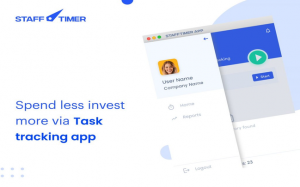Why Personal Time Tracking is Important
Personal time tracking is an important part of our lives. Its importance can be perceived by the fact that once you master it, you’ll immediately improve the quality of your life.
A scary thing about time is that once it’s lost, you’ll never get it back. But there is also light at the end of the tunnel. You can organize and track your time to get ahead in life.
If you revolve your day around to-do lists then unmet deadlines will inevitably pile up. That will lead to a fear of failure as well. This will end up paralyzing your professional life. Just imagine working long hours at the office, only to achieve nothing in the end and compromising your personal life in the whole process.
Only by implementing personal time tracking in your life can you change your fate.
Time is one of our most valuable assets. So much so that the great Benjamin Franklin used to say, “Time is money”. And personal time is known to be the equivalent of happiness, harmony, and quality. These qualities are the foundation of work-life balance and satisfaction.
In this article, we’re going to discuss personal time tracking and why it’s so important in our lives. So without any further ado, let’s just jump into it.
What is a personal time tracking?
As the name suggests, personal time tracking means keeping an eye on your personal tasks, projects, activities, and routine.
When we talk about personal time tracking, we don’t necessarily mean tracking only household chores. Time tracking can also extend to your work life as well. In fact, it’s not outlandish to consider time tracking as the main key to professional success.
How to track time
Nowadays, you can easily track your time through time tracking apps like Staff Timer. But that was not always the case.
People have been tracking time through different methods since ancient times. Our forefathers used to observe the sun and the stars. They even invented peculiar devices like sundials. Today, we’ve come a long way since then and now use all types of time tracking software to efficiently keep track of time.
Before the introduction of modern devices, employees had to physically clock in and out of a time clock machine. This machine was invented in the late 1880s by Willard Le Grand Bundy. When the patent for his time recorder (the precursor to modern time tracking apps) was approved, Bundy started a company that developed employee attendance machines.
Bundy’s company later merged with other organizations to form the International Time Recorder Company (ITR). Fun fact: this particular company was the actual predecessor to IBM.
Time tracking software
Time tracking software allows users to effectively track their time.
Efficient time management can help meet tight deadlines, avoid stress, improve productivity, and above all else, make extra time for themselves. It can also help maintain a work-life balance by keeping track of the time.
Employee time tracking software
Nowadays, time tracking software can be found in almost every industry. Workplaces that require the use of computers or mobile devices are quickly embracing these apps. Many companies have also started using employee monitoring software to watch over their employees’ work activities.
See Also: Best Time Clock Apps for Multiple Employees
Time Tracking: Advantages
Time tracking apps in the workplace are popular for a reason. Some pros include:
- Exposing sensitive problems like harassment.
- Reducing/preventing theft.
- Discovering which workload may need to be redistributed.
- Helping monitor and ensure safe practices.
- Reducing instances of employees wasting company time.
- Highlighting bottlenecks or areas where employees spend more time than necessary, letting employers review the process and improve upon it.
- Allowing employers to monitor their employees’ work activities and ensure that they’re being productive and following the rules.
- Tracking hours worked on specific tasks, leading to an increase in accuracy for invoicing.
- Helping with recordkeeping, such as tracking employee time, projects, tasks, etc.
- Monitoring customer interactions to ensure policies are being adhered to and customers are being treated well.
Time Tracking: Disadvantages
Every rose comes with a thorn. Time tracking apps provide a lot of downsides in the workplace as well. Some drawbacks include:
- Employees feeling as if their privacy has been violated.
- Increase in employee turnover rate if tracking becomes very intrusive.
- Time tracking being perceived as a sign of mistrust; breeding resentment and reducing employee morale and productivity.
- The line between work and home getting blurred; most people often use the same device for both.
- Important data getting misused by the higher-ups.
- Legal issues to contend with, ensuring employers remain within their legal rights while also respecting their employees’ privacy rights.
- Tracking programs only being useful if they are carefully scrutinized, requiring lots of time and money.
- Modern time tracking becoming a great risk by creating a false sense of security.
Key Takeaways
Personal time tracking is only useful in the right hands. If you want to be someone of importance then you have to start tracking your time. Otherwise, the sands of time will quickly blow past you.
Instead of using traditional methods like pen and paper, use time tracking apps to keep an eye on your activities. They are fast, reliable, and secure. To read about some of the best time management apps for 2020, click here.
If you found this article helpful, do share it with your circle. Good luck and stay productive!







